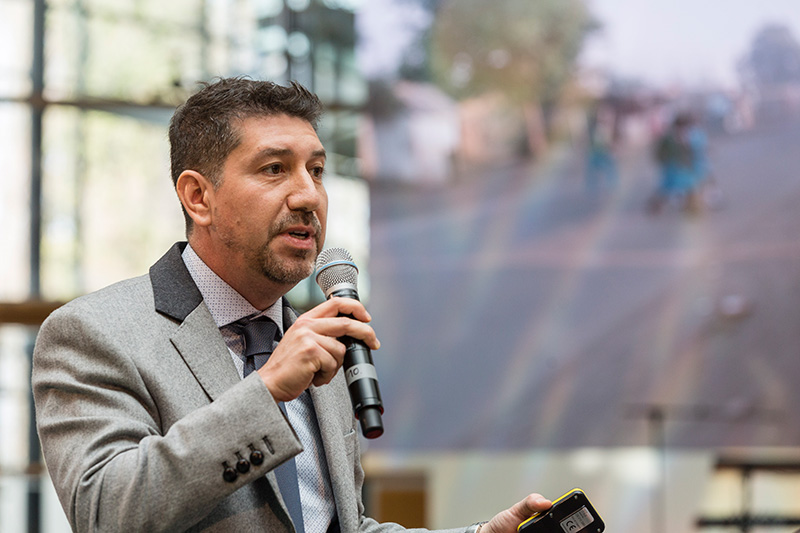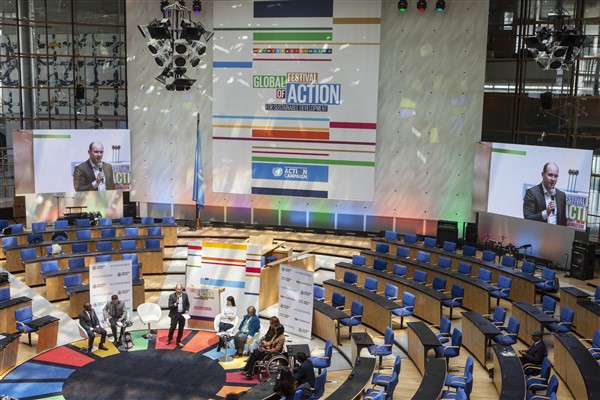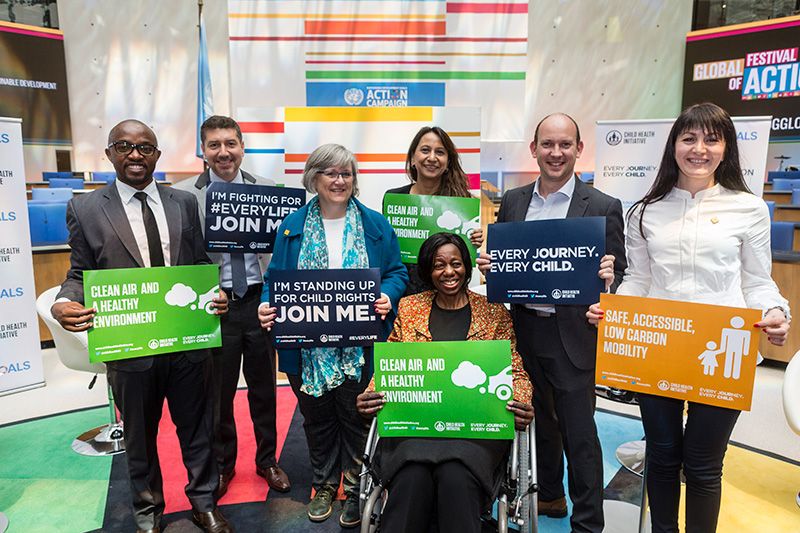“You need to create a safe environment. The goal should be for every single school around the world to have a safer environment. Safe infrastructure saves lives.” – Julio Urzua, iRAP’s Regional Director – The Americas, discussing Star Ratings for Schools at the Global Festival of Action for Sustainable Development
iRAP joined The Child Health Initiative (CHI) in Bonn this week playing a key role in the Global Festival of Action for Sustainable Development, issuing a strong call for safe and healthy journeys to school for every child worldwide.
The global festival, held from 21-23 March, is the main event set up by the UN Sustainable Development Goals Action Campaign aimed to help drive progress towards the global goals.
iRAP was part of the Child Health Initiative interactive panel discussion which focussed on safe and healthy journeys to school on the opening morning of the festival. The panel brought together experts in public health, child injury, air quality and sustainable mobility before an audience of international development practitioners.
The audience in Bonn and worldwide on the UN TV webcast, was presented with the realities of the journey to school for children in many low- and middle-income countries around the world.
Mr Urzua discussed how the Star Ratings for Schools app is a key tool for measuring the risk children are exposed to in their journey to school and informing low cost infrastructure measures to improve safety and save lives. He profiled a recent road safety assessment and improvement carried out by Amend and iRAP at Justin Kabwe Primary School in Lusaka, Zambia.
“The addition of simple low cost infrastructure measures, such as pedestrian crossings, fencing, signage, signals, parking exclusions and drop off zones, coupled with no-cost speed reductions improved safety around the school.
“Access roads raised from 1 and 2-star dangerous to 5-star safety excellence.” he said, “assessed using iRAP’s Star Rating for Schools app.”
The Lusaka school example was contrasted with the story of Cecilia Chibulunje who lives in a similar community in one of the poorest neighbourhoods of Dar es Salaam, Tanzania. Her family earns little over $2 a day. Cecilia who is now 10 years old, was hit by a speeding motorcycle just a few metres from her school gate. She suffered head injuries and missed a significant amount of schooling. Her family has been plunged further into poverty. This, the audience was told, is a story repeated across the developing world thousands of times each day with road traffic injury a major global health burden for children aged 10 and over.
Mr Urzua was joined on the panel by: Dr. Margie Peden, Senior Research Fellow at The George Institute for Public Health, Simon Kalolo, Amend NGO Senior Programme Officer from Dar es Salaam, Tatiana Mihailova, Executive Director of the Automobile Club of Moldova and representative of EASST; Prarthana Borah, India Director Clean Air Asia and Bright Oywaya, Executive Director of ASIRT, alongwith Moderator FIA Foundation Deputy Director Avi Silverman.
The panel gave evidence of the burden of road traffic on children, highlighting how injury and toxic air are combining to damage the health and development of millions of children worldwide. They presented the solutions to address these issues, and called for greater collaboration with those implementing the SDGs in order to improve child health and uphold child rights.
FIA Foundation Deputy Director Mr Silverman said: “Delivering the SDGs for children around the world must be upheld as a core priority of the global development agenda. However, we will not be able to achieve anything if the major threats and burdens that children face are not addressed. Road traffic injury, the number one global killer of older children must not go ignored by the development community. Safe streets and clean air for young people are non-negotiable. We can, and we must, deliver a safe and healthy journey to school for every child worldwide.”
Click here to view the webcast from the Global Festival of Action for Sustainable Development




















